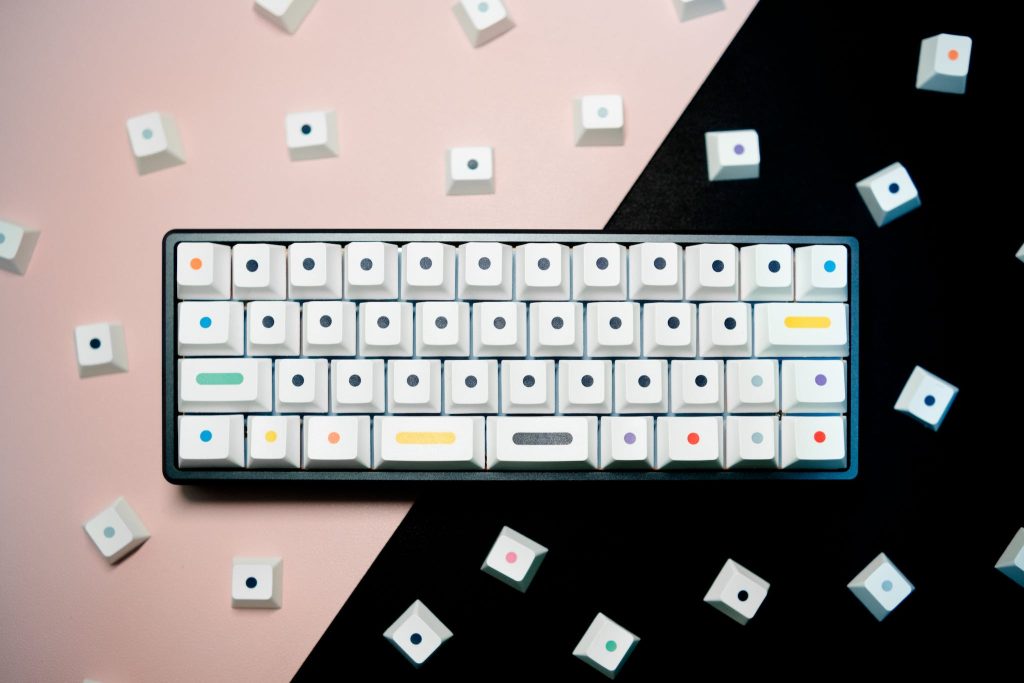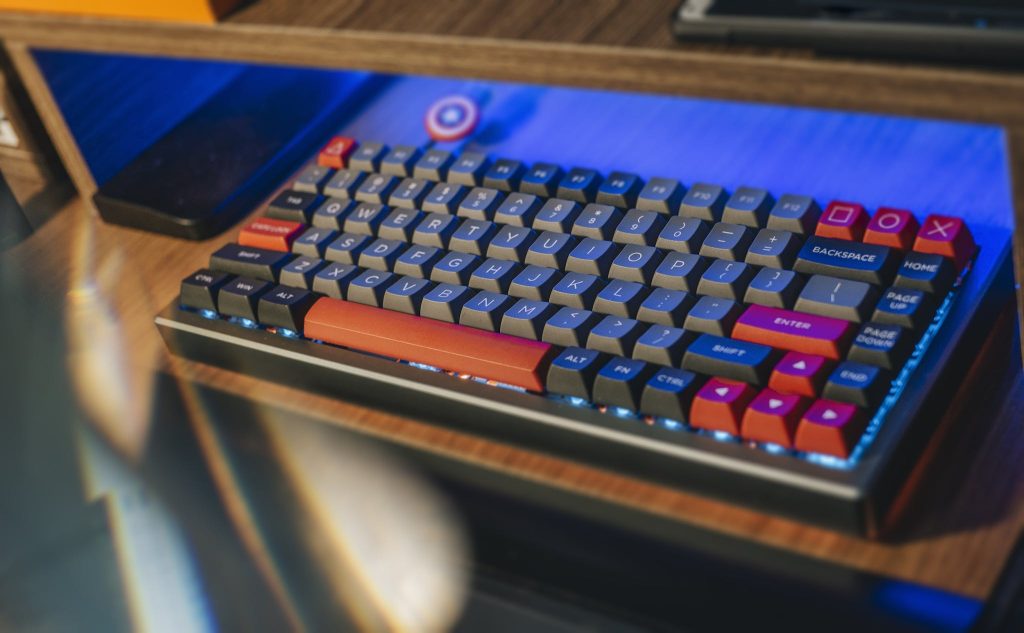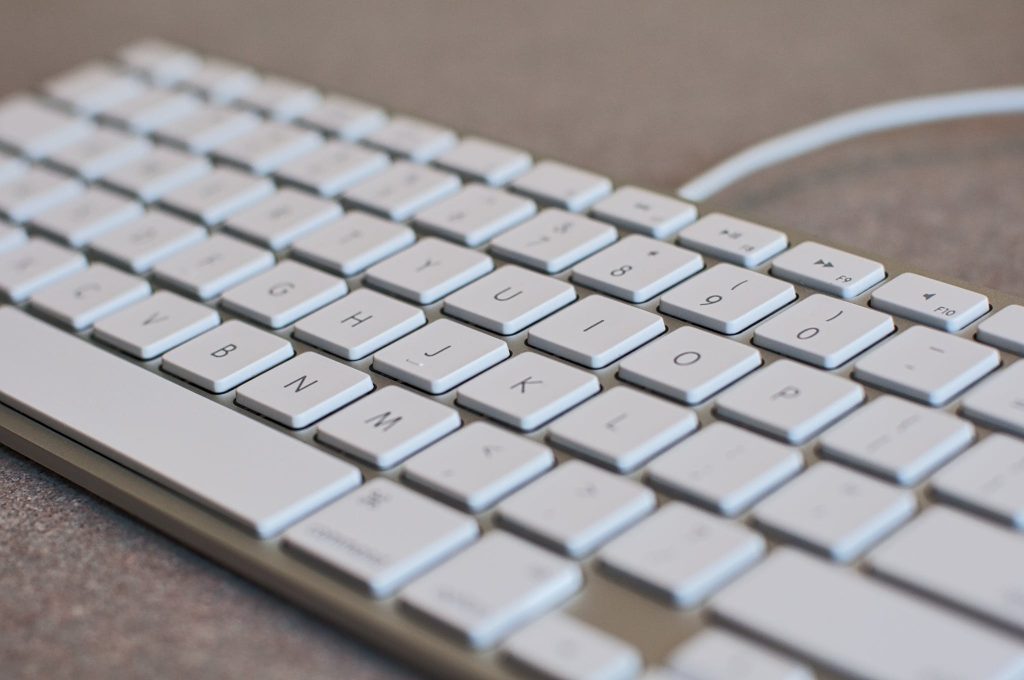When I first entered the realm of computer peripherals, one question that consistently popped up was, “Are mechanical keyboards better?” It seemed like everyone had an opinion. After years of hands-on experience and countless typing hours, I’ve compiled a comprehensive list of the top benefits of mechanical keyboards. Let’s dive in!

Understanding the Basics: Mechanical vs. Membrane
To truly appreciate the advantages of mechanical keyboards, it’s essential to understand the fundamental difference between mechanical and membrane keyboards. A membrane keyboard relies on pressure pads and electrical circuits, while a mechanical one uses individual mechanical switches for each key.
The Unbeatable Tactile Feedback
One of the first things you’ll notice when you type on a mechanical keyboard is the tactile feedback. Every keypress is distinct, providing a satisfying sensation that many typists and gamers swear by. This feedback isn’t just for show; it can genuinely enhance typing speed and accuracy.
Durability: Built to Last
Mechanical keyboards, particularly those with Cherry MX switches or their equivalents, are known for their longevity. While an average membrane keyboard might last a few years, a good mechanical keyboard can endure for decades with proper care. This durability translates to value for money in the long run.
Customizability: Making It Truly Yours
When I customized my first mechanical keyboard, it was a game-changer. The ability to swap out keycaps, modify switches, or even add sound dampeners allows users to tailor their keyboard to their exact preferences. Whether it’s for aesthetics or functionality, the customization possibilities are nearly endless.
Performance Boost for Gamers
For gamers, the precise actuation point of mechanical switches can be the difference between victory and defeat. The rapid response and consistent keypresses ensure that every action in the game is timely and accurate. Plus, the anti-ghosting feature in many mechanical keyboards ensures multiple simultaneous keypresses are registered accurately.
The Sound: Music to the Ears
While some might find the sound of a mechanical keyboard clacking away annoying, for many, including myself, it’s music to the ears. The rhythmic sound can be therapeutic, and it provides an audible confirmation of each keypress, further enhancing the typing experience.
Ergonomics and Comfort
Many mechanical keyboards are designed with ergonomics in mind. The elevated keys, combined with wrist rests and adjustable feet, can make typing more comfortable, reducing the strain on the wrists and fingers. Over extended typing sessions, this can make a world of difference.
Variety of Switches for Every Typist
From Cherry MX Reds for gamers to Blues for typists, and Browns that offer a middle ground, there’s a mechanical switch for everyone. Each switch type offers a different feel and sound, allowing users to find the perfect match for their typing style and preference.
Economic Benefits: A Wise Investment
- Long-Term Savings: While mechanical keyboards may have a higher upfront cost, they often outlast their membrane counterparts by years. This longevity means you’ll be spending less in the long run.
- Resale Value: Given their durability and the ever-growing community of mechanical keyboard enthusiasts, these keyboards tend to retain value better, making them a good investment.
- Repairability: Unlike many membrane keyboards that are often discarded when they malfunction, mechanical keyboards can often be repaired, saving money and reducing electronic waste.

Aesthetic Appeal: More Than Just a Tool
- Backlighting & RGB: Many mechanical keyboards come with customizable backlighting, allowing users to choose from a spectrum of colors and effects that can be tailored to their setup or mood.
- Themes & Collections: The mechanical keyboard community frequently releases themed keycap sets, allowing users to change the entire look of their keyboard seasonally or based on personal interests.
- Compact Designs: From full-size to tenkeyless (TKL) to 60%, there’s a design for every desk size and functionality need.
Enhanced Productivity Features
- Programmable Keys: Many mechanical keyboards allow users to program specific keys, which can be especially useful for professionals who rely on software shortcuts.
- N-Key Rollover and Anti-Ghosting: These features ensure that every keypress is registered, even when multiple keys are pressed simultaneously.
- Dedicated Media Controls: Some models come with dedicated volume knobs, play/pause buttons, and other media controls, enhancing user convenience.
Community and Support
- Vast Online Communities: Websites, forums, and social media groups dedicated to mechanical keyboards provide a wealth of information, advice, and shared experiences.
- Group Buys and Collaborations: The mechanical keyboard community often collaborates to produce limited-edition keycap sets, switches, and even keyboards, allowing members to get their hands on exclusive gear.
- Meetups and Conventions: Yes, there are events dedicated entirely to mechanical keyboards! These gatherings are a testament to the passion and enthusiasm of the community.
Environmental Impact: A Greener Choice
In today’s age, where sustainability is at the forefront of many discussions, the mechanical keyboard shines as a greener choice. The robust build of these keyboards inherently means they have a longer lifespan. This longevity translates to fewer keyboards being discarded, thus reducing electronic waste. Compared to their membrane counterparts, which often find their way to landfills after a few years of use, mechanical keyboards can stand the test of time.
Furthermore, the materials used in these often lean towards higher quality. Instead of relying on cheaper, less durable plastics, many mechanical keyboards incorporate metals like aluminum in their chassis, providing not only a sturdier feel but also a more sustainable build. This emphasis on quality ensures that the keyboard not only lasts longer but also has a reduced carbon footprint during its production.
Another point worth noting is the energy efficiency of mechanical keyboards. Some models are designed to be particularly energy efficient, with features like auto-sleep or power-saving modes that ensure minimal electricity usage when they’re not in active use. This might seem like a minor point, but when you consider the vast number of computer users globally, the collective energy savings can be significant.

The Social Aspect: More Than Just a Keyboard
Beyond the tangible benefits, there’s a social dimension to the world of mechanical keyboards. Joining this community introduces you to a global network of enthusiasts who share a passion for these devices. This shared interest has given birth to countless online forums, discussion groups, and even real-world meetups where individuals can showcase their unique keyboard builds, exchange ideas, and forge new friendships.
Moreover, the mechanical keyboard community is renowned for its collaborative spirit. Members often come together to organize group buys, pooling resources to produce limited-run keycap sets, exclusive switches, or even entirely new keyboard designs. These collaborations are a testament to the community’s innovative spirit and its commitment to pushing the boundaries of what’s possible in the world of mechanical keyboards.
Conclusion
In conclusion, mechanical keyboards stand out as superior due to their tactile feedback, unparalleled durability, and vast customization options. They’re an economically wise investment, blending both aesthetic appeal and productivity enhancements. Their sustainable design showcases an environmental consciousness, reducing waste and promoting greener choices.
Beyond the tangible, the vibrant community surrounding mechanical keyboards fosters collaboration and innovation. Embracing the world of mechanical keyboards isn’t merely about choosing a typing tool; it’s about opting for quality, sustainability, and being part of a passionate global community. The mechanical revolution is here, and it’s redefining our keyboard experiences.
FAQs
- What is the primary difference between a mechanical and a membrane keyboard?
Mechanical keyboards use individual mechanical switches for each key, offering tactile feedback and durability. In contrast, membrane keyboards rely on pressure pads and electrical circuits, often resulting in a softer keypress. - Why are mechanical keyboards often more expensive than membrane keyboards?
The higher cost is attributed to the quality of materials used, the individual mechanical switches, and the overall durability and longevity of mechanical keyboards. While the initial investment is higher, they often offer better value over time due to their extended lifespan. - Can I customize a mechanical keyboard to match my preferences?
Absolutely! One of the significant advantages of mechanical keyboards is their high customizability. Users can swap out keycaps, modify switches, adjust backlighting, and even add sound dampeners to tailor their keyboard experience. - Are mechanical keyboards only for gamers?
While many gamers prefer mechanical keyboards for their precise actuation and rapid response, they are also favored by typists, programmers, and professionals for their tactile feedback and typing accuracy. - Is the sound of a mechanical keyboard too loud for an office environment?
Mechanical keyboards can vary in sound, with some switches producing a louder “clack” than others. However, there are quieter switch options and sound dampening solutions available for those concerned about noise in shared spaces.

Experience is what matters at the end!!
Hi! This is Jacob Jay – founder of Keyboardgear.com! From childhood to adulthood, I’ve always remained passionate about IT, and the revolution in this industry, especially gaming on the PC can’t go out of my way. Since I’m an enthusiastic gamer, and I love to experience various gaming accessories, particularly mechanical keyboards, that really boost my gaming adventure manifolds. So, my nerve cells hit me to transfer my experiences into word form and share with others to identify the ideal keyboards perfectly fit for their gaming modes.
I know very well how hard it is to find the high-quality items available on the internet that ought to be exactly the same as seen as on the screen. But the counterfeiters have ruined the user’s trust. As I have passed all such situations, I’m obliged to deliver the genuinity and express the same as what I am saying.
So, now, I’m working on the mission to provide very helpful and frankly but trustworthy reviews and guides about various mechanical keyboards, mouses, and other gaming accessories as per my personal experiences and sound knowledge.
